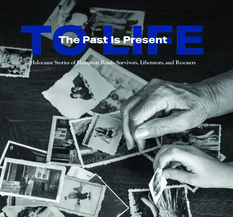Elka Mednick
As Holocaust denial and antisemitism continue to spread at alarming rates, International Holocaust Remembrance Day provides an opportunity to learn and reflect upon this important event that connects in so many ways to the present environment.
The United Nations General Assembly designated January 27 — the anniversary of the liberation of Auschwitz-Birkenau — as International Holocaust Remembrance Day. This day is a time to honor the six million Jewish victims of the Holocaust, as well as millions of other victims, including Roma, disabled individuals, and political dissidents who suffered and perished under the Nazi regime. The day serves to ensure that the memories of those who who were lost and those who survived are honored each year.
International Holocaust Remembrance Day is also a reminder of the importance of educating future generations about the history of the Holocaust and the dangers of hatred, prejudice, and discrimination. It presents an opportunity for people worldwide to reflect on past atrocities and reaffirm their commitment to promoting human rights, tolerance, and understanding.
There are a number of ways to acknowledge the significance of International Holocaust Remembrance Day and learn the lessons of the Holocaust, including reading a section in the Holocaust Commission’s To Life: The Past is Present, listening to an episode of the podcast, Stars Among Us, visiting the United States Holocaust Memorial Museum or the Virginia Holocaust Museum, and encouraging a student to enter the Elie Wiesel Writing and Visuals Arts Competition.
To learn more about International Holocaust Remembrance Day, visit https://encyclopedia.ushmm.org/content/en/article/international-holocaust-remembrance-day.
To learn more about the Holocaust Commission of the United Jewish Federation of Tidewater, visit www.holocaustcommission.org.

